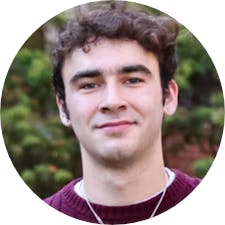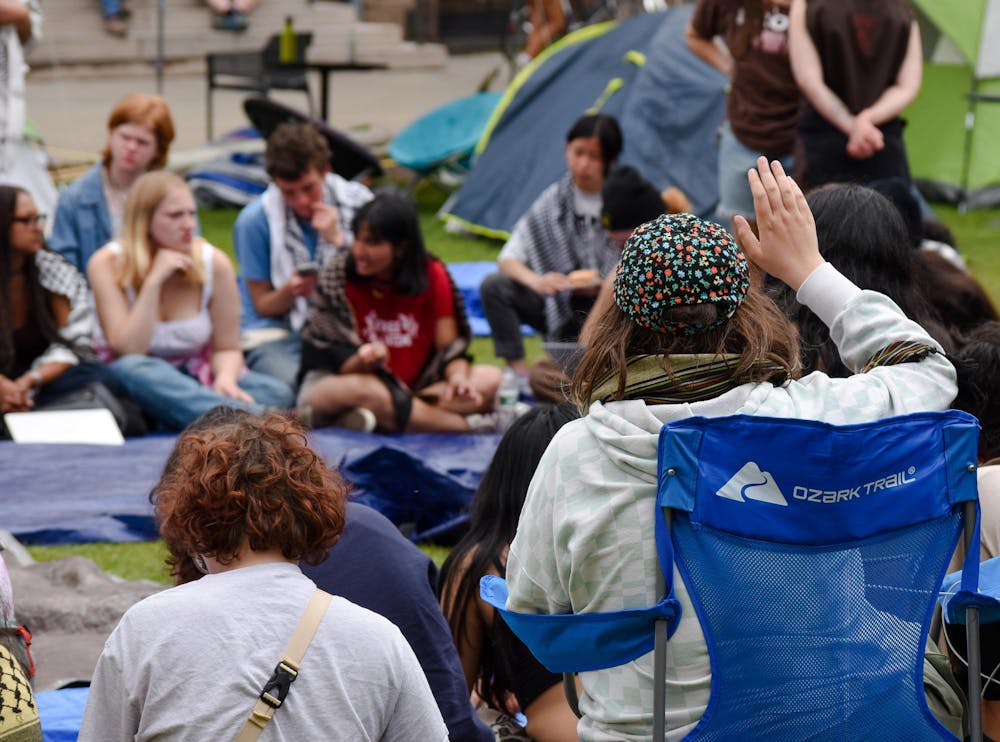Brown University has agreed to hear a divestment proposal in May, according to a letter sent by President Christina Paxson P’19 P’MD’20 to encampment demonstrators at around 11:00 a.m. This requires the current encampment to be disbanded and no further unauthorized protest.
“Provided that the encampment is peacefully brought to an end within the next few days and is not replaced with any other encampments or unauthorized protest activity (any protests violating University policies related to time, place or manner) this academic year, the Corporation of Brown University will invite five students representing the current encampment activity and a small group of faculty members to speak with a similarly-sized group of Corporation members about their arguments for divestment,” Paxson’s letter reads. “This subset of the Corporation would include the Chancellor and the chair of the Investment Committee.”
Vice President for Campus Life Eric Estes wrote an email to demonstrators inviting “student leaders of the encampment to a meeting this afternoon at 3 p.m. to further discuss, and answer any questions, about the proposed path forward.” The meeting will include Estes and Executive Vice President for Planning and Policy Russell Carey.
In the letter, she declined to recommend dropping the charges against the 41 students arrested during a Dec. 11 sit-in at University Hall, where demonstrators also called for divestment, declining a recommendation from the Brown University Community Council earlier this week.
The University has previously said that the endowment is not directly invested in weapons manufacturers. Brown’s Investment Office is contractually obligated not to disclose the content of the managers’ portfolios but assured that none have a specific focus on defense manufacturing.
The encampment began last Wednesday with students calling for divestment from companies linked to the Israeli government. Throughout the past five days, students have faced potential disciplinary action from the University for violating protest policy. This has included threats of probation and “separation from the University.”
When the encampment began, protesters demanded the University divest from “companies that facilitate the Israeli occupation of Palestinian territory,” in keeping with a 2020 report from the Advisory Committee on Corporation Responsibility in Investment Practices. The committee has since been renamed the Advisory Committee on University Resources Management.
Students at a February hunger strike and December sit-in, which resulted in the arrest of 41 students, called for similar actions.
Paxson refused to bring the report’s recommendations to the Corporation in a March 2021 letter. “The recommendation did not adequately address the requirements for rigorous analysis and research as laid out in ACCRIP’s charge, nor was there the requisite level of specificity in regard to divestment,” the letter reads.
Instead, Paxson encouraged students to submit a divestment proposal to ACURM — ACCRIP’s successor. The protesters have previously argued that the ACURM proposal consideration process takes too long, saying that it could “take months — an untenable timeline given the urgency of the crisis in Gaza.”
In a previous interview with The Herald, Paxson said that she would “ask ACURM to fast track” divestment consideration, should a proposal be submitted. No proposal has been submitted to ACURM by the protesters.
This is a developing story. Check back for updates.
Correction: This article was updated to reflect that a subset of the Corporation has agreed to meet and hear the resolution in May. The proposal will not be presented at the May Corporation meeting.

Owen Dahlkamp is the managing editor of newsroom on The Herald's 135th Editorial Board, overseeing the paper's news operations. Hailing from San Diego, CA, he is concentrating in Political Science and Cognitive Neuroscience with an interest in data analytics. In his free time, you can find him making spreadsheets at Coffee Exchange.

Ryan Doherty is the managing editor of digital content and vice president of The Herald's 135th editorial board. He is a junior from Carmel, NY who is concentrating in chemistry and economics. He previously served as a university news and science & research editor, covering faculty and higher education.





